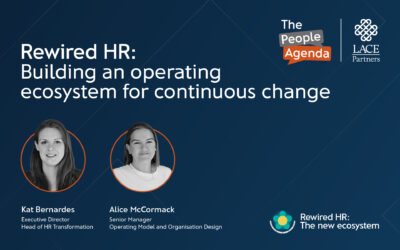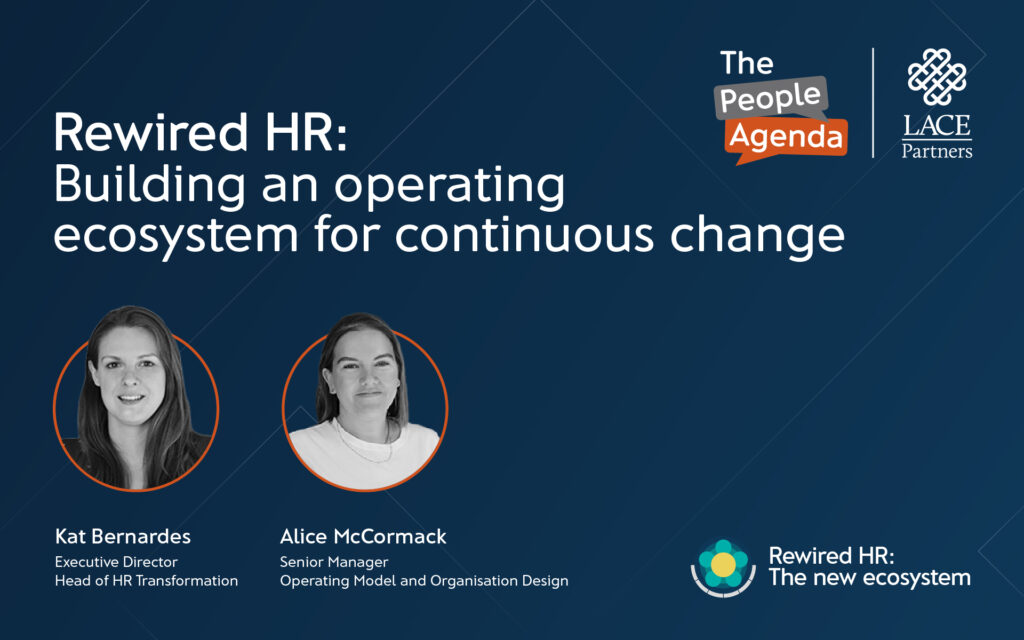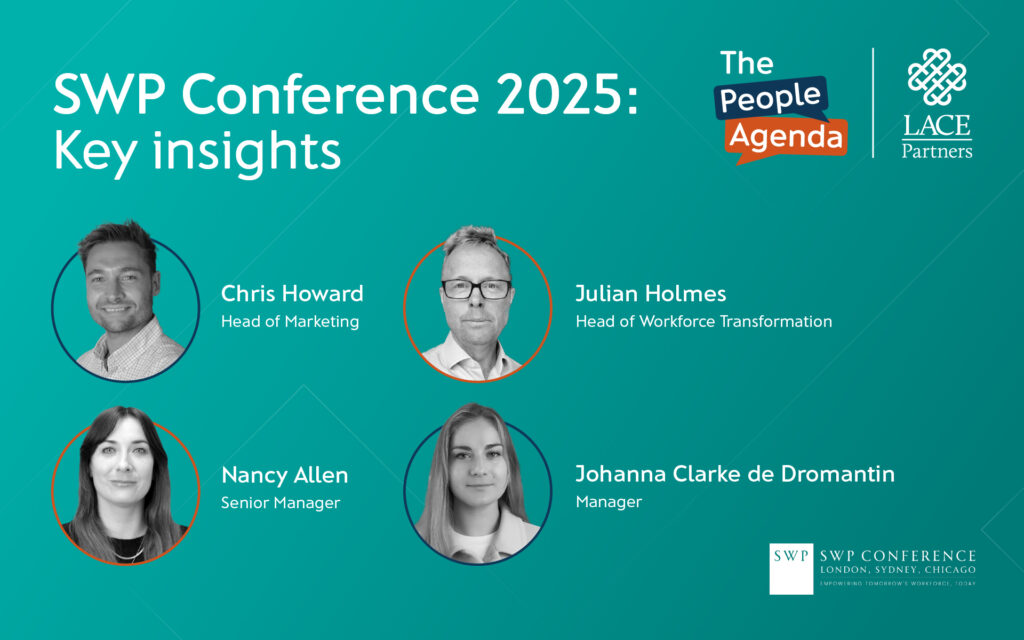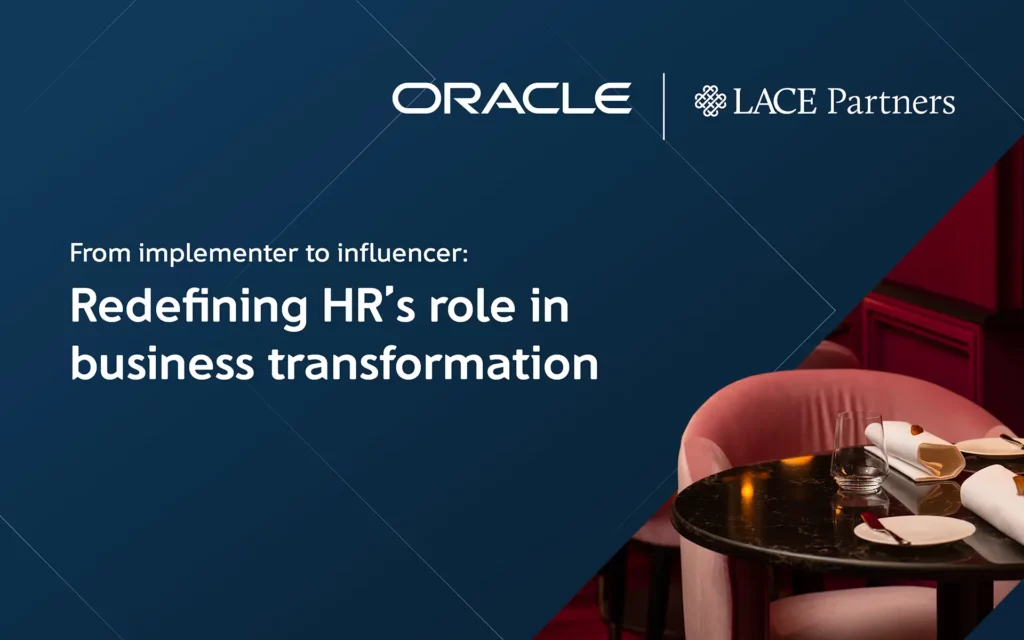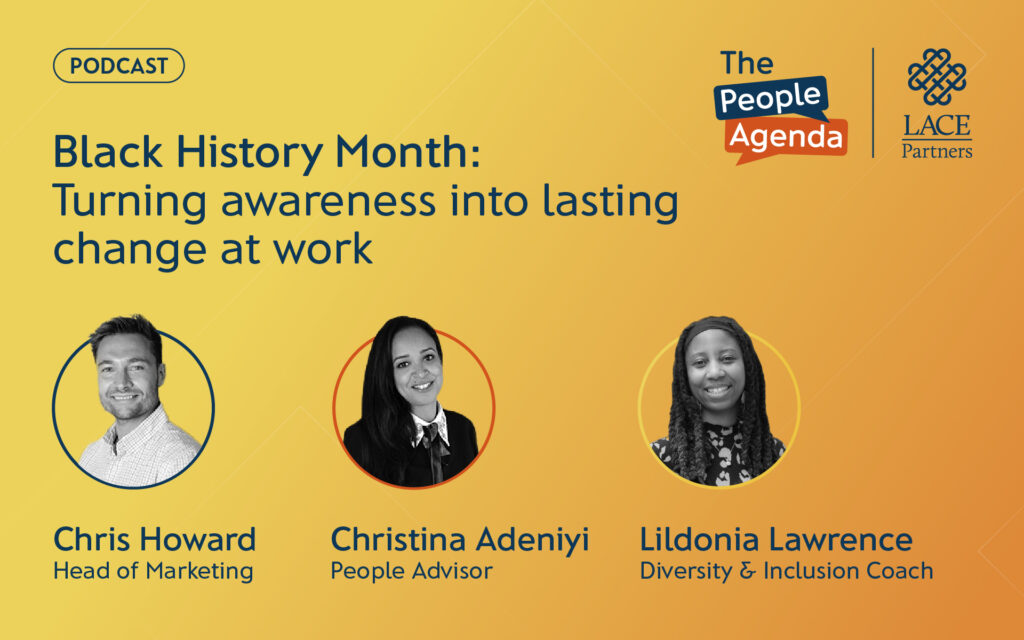Key takeaways:
- Shifting to a skills-based organisation is a cultural transformation that challenges traditional hierarchies and norms.
- Influence moves from job titles to skill-based expertise, creating more dynamic and inclusive ways of working.
- Not everyone will feel comfortable in the new model—change management must focus on psychological safety and clear communication.
- Early wins and self-assessment help embed a growth mindset and make change stick.
In our Becoming-skills powered campaign, so far we’ve covered a lot of ground, from the foundations and key skill solutions through to building a value case and strategy for skill![]() s approaches. Today, we zoom into the impact on the individual with change experts Liz Bailey and Gemma Ryall, to understand both the motivators and hurdles for employees transitioning to a skills-first approach.
s approaches. Today, we zoom into the impact on the individual with change experts Liz Bailey and Gemma Ryall, to understand both the motivators and hurdles for employees transitioning to a skills-first approach.
The modern workplace is undergoing a seismic shift. Organisations worldwide are transitioning from traditional role-based structures to skills-based frameworks. This transformation, driven by rapid technological advances and evolving workforce dynamics, centres on recognising and leveraging individual capabilities rather than predefined job descriptions.
Why does the shift from jobs to skills require great change management?
- Cultural transformation: Moving to a skills-based organisation is a significant cultural change, challenging long-standing norms and behaviours.
- Individual impact: This transition greatly affects individuals, placing a much stronger emphasis on their skills rather than solely on task completion.
- Shift in influence: The culture pivots from position-based power to knowledge-based power.
- Redefined authority: Traditional hierarchies, where authority comes from title or tenure, are replaced by environments where expertise and capabilities drive impact, influence, and ways of working.
- Dynamic structures: There’s a move away from rigid, hierarchical structures towards more dynamic, interconnected ways of working, where influence is derived from skill expertise rather than organizational position.
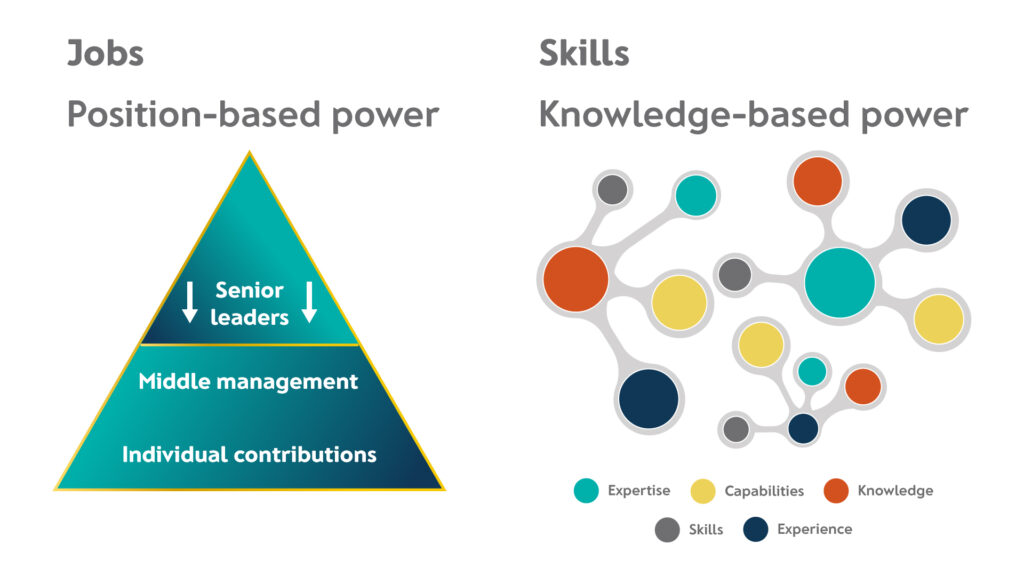
What does this mean? The shift upends traditional ways of working, with the potential of sparking both positive and uncertain feelings from your team. For example, it can give more junior members of staff the opportunity to be celebrated for their strength in certain skills and given more exposure in their delivery of that work – despite having less overall experience than their senior colleagues. On the other end of the scale, some members of the team may feel unsure about the new spotlight on their capabilities and require additional support.
Your employees will undertake a cultural transformation:
| From: | To: |
| A one-to-one relationship between an individual and a job. | A more network-based relationship between work and skills. Individuals have a portfolio of skills that they own and evolve, celebrating the uniqueness of everyone and maximising the opportunity for individuals to be better mapped to work and outcomes. |
This fundamental pivot requires careful change management to avoid creating uncertainty and resistance, particularly among long-tenured leaders who have operated successfully in conventional structures.
Key considerations in transitioning to skills smoothly:
- Building a culture of psychological safety is critical for sustainable transformation.
- Make sure everyone has fair access to learning new skills.
- Implement specific mechanisms to monitor and address potential biases.
- Emphasise early wins through pilot programs, allowing individuals, teams, and leaders to experience the benefits of skills-based approaches first-hand.
- HR professionals leading this change should focus on embedding new cultural ways of working.
- Culture change takes time, organisations intending to move towards a skills-based model should prioritise shaping and preparing for this cultural shift as an early action in their plans.
Your organisational culture change checklist:
- Growth mindset – are we encouraging continuous learning, fail fast and experimentation?
- Leadership mindset – do we enable talent sharing and readiness to be vulnerable in sharing skill sets and skill gaps?
- Empowerment – are we offering individuals ownership their own learning, career, and future skills?
- Fluid ways of working – do we promote work distribution, skill mapping, networking and influencing?
- Assessment transparency and fairness – are our processes fit for purpose?
- Skill matching to deliverables – does our approach to ensure fairness and equitable opportunities for all employees?
What LACE can do?
We’re passionate about making change stick. We are happy to chat with you about your transition to becoming a skills-based organisation and alongside our change management services we can also provide behavioural assessments. These help to identify behaviours that might need to change and help to prioritise areas of focus, as three-step behavioural process.
If you’d like to find out more, simply fill out the form below and we will be in touch to chat through this with you.



